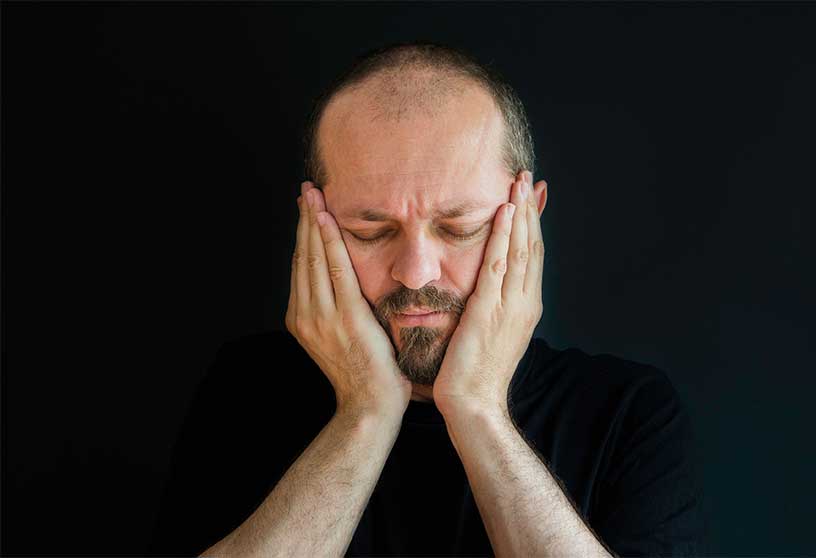Crack Withdrawal Symptoms, Timeline & Detox

Medically Reviewed By: Manish Mishra, MBBS
Crack cocaine use causes a short-term, euphoric, and addictive high that can quickly build into physical dependence. When this occurs, those who stop smoking crack may experience uncomfortable withdrawal symptoms that include mood swings, intense cravings, and suicidal thoughts.

Cocaine is a strong stimulant drug produced from coca leaves in Colombia and other South American nations. It comes in two forms:
- powder cocaine, which is most often snorted
- crack cocaine, a modified freebase form of the drug that’s smoked
While both forms of cocaine contain the same drug with the same physical and mental effects, the increased delivery speed and potency that comes with smoking crack cocaine, rather than snorting it, can increase crack’s short- and long-term side effects, including its addictive and dependence-forming properties.
Symptoms Of Crack Withdrawal
Unlike other drugs of abuse like alcohol, opioids, and benzodiazepines, cocaine and crack cocaine aren’t known for causing severe physical symptoms of withdrawal like nausea, vomiting, tremors, seizures, or blood pressure changes.
However, cocaine withdrawal is well known for causing severe and distressing psychological symptoms that can include:
- agitation
- anxiety
- cocaine cravings
- cognitive impairment
- concentration problems
- depression
- irritability
- inability to feel pleasure
- increased symptoms from any co-occurring mental health conditions
- mood swings
- nightmares
- restlessness
Physical symptoms, while not typically dangerous, can also be uncomfortable and may include:
- feelings of pain or discomfort
- intense fatigue
- increased appetite
- sleepiness
In severe cases, cocaine can also cause strong feelings of paranoia, symptoms of psychosis (hallucinations and delusions), or a sudden increase in suicidal thoughts or behavior.
Crack Cocaine Withdrawal Timeline
The length and progression of cocaine withdrawal can vary for different individuals.
As a general rule, crack cocaine withdrawal often progresses through the following phases:
Phase I
The first 1-2 days of cold turkey crack cocaine withdrawal are referred to as a crash.
As the drug’s effects wear off and cocaine is purged from the body, the high of crack cocaine use can give way to an emotional and physical low marked by a strong sense of depression, feelings of anxiety, and an inability to feel pleasure or satisfaction without the drug.
Phase II
Acute withdrawal takes place after the crash and lasts for 1-2 weeks, though this can be extended to ten weeks in severe cases.
This phase brings the worst symptoms of withdrawal, including irritability, fatigue, heavy sleeping, increased appetite, inability to concentrate, mental fog or confusion, and intense drug cravings. Pain, tremors, and other physical symptoms are also possible.
Phase III
Lastly, some but not all of those who go through the cocaine withdrawal process will experience post-acute withdrawal symptoms.
These symptoms, which can occur months or even years after detoxification is over, are lingering evidence of cocaine’s deep and lasting effects on a person’s brain and behavioral patterns.
They are often triggered by memories, smells, sights, items, or locations associated with crack cocaine abuse in the past.
When these symptoms occur, you may experience apathy, severe energy crashes, unstable mood, and intense cravings or compulsions for crack use.
Crack Cocaine Detox
Even though the effects of crack cocaine withdrawal on the body aren’t as severe as those caused by other drugs, the potential for psychosis, suicidal ideation, and relapse make crack detox a dangerous and potentially life-threatening process that shouldn’t be attempted alone.
Ohio Recovery Center hosts a professional medical detox service designed to help you or your loved one through the process of drug withdrawal, serving you with close medical supervision, counseling, and other support throughout the detox process.
Detoxification is the first step towards rehabilitation from crack cocaine addiction and also helps prepare you to participate in other professional drug addiction treatment options.
Crack Cocaine Addiction Treatment
Crack addiction is a form of substance use disorder, a chronic, compulsive, and relapsing medical condition that is best addressed with the help of healthcare professionals in specialized treatment facilities.
These include personalized inpatient treatment programs offered by Ohio Recovery Center, which feature:
- cognitive-behavioral therapy (CBT) and other types of behavioral therapy
- counseling and peer support groups
- alternative therapies
- dual diagnosis care for co-occurring mental health disorders
- aftercare support
To learn more about our substance abuse and addiction treatment options, please contact us today.
- National Institute on Drug Abuse (NIDA) — Cocaine DrugFacts https://nida.nih.gov/publications/drugfacts/cocaine
- National Institute on Drug Abuse (NIDA) — How is cocaine addiction treated? https://nida.nih.gov/publications/research-reports/cocaine/what-treatments-are-effective-cocaine-abusers
- National Library of Medicine: MedlinePlus — Cocaine Withdrawal https://medlineplus.gov/ency/article/000947.htm

